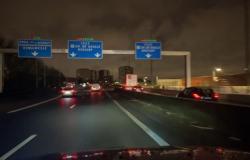DECRYPTION – Why do we feel the obligation to go on vacation? Whether for long weekends or longer holidays, this necessity is fueled for some by social obligations, but also a need to disconnect.
For some, it is an essential social rite. For others, it is the assurance of a successful disconnection. As vacations and long weekends come one after another, many feel a form of injunction to leave. Seaside, skiing, mountains: where to go? How can we occupy this time that is both blessed for workers and cursed for parents lacking childcare? “To think about ourselves in life, we consider that we must change place, space and speed», notes Jean Viard, sociologist and co-author of Year zero of tourism (written with David Medioni, ed. de l'Aube). For many, and in any case as soon as possible, this means getting away from it all at all costs during your vacation.
The options seem almost limitless, between family visits, organized trips, a getaway to a European city, a trip to the end of the world… “Departure is highly valued in our societies. This is widely reported in the media and social networks. Tourism is an important economic and media sector, which weighs on representations of what is socially valued”analyzes for his part the sociologist Bertrand Réau, co-author with Saskia Cousin of Sociology of tourism (ed. La Découverte). And in a country, France, where the tourism sector represents nearly 8% of GDP and 2 million direct and indirect jobs (according to the Ministry of the Economy), not contributing to it can have repercussions on our place in the world. the society. “Not leaving is somehow leaving the group”assures Jean Viard.
Revealer of inequalities
Travel becomes an intrinsic element of social status. And this varies depending on the destinations and the frequency of the breaks chosen. “We don't go anywhere and anyhow. We must determine what social value to derive from the trip”adds Bertrand Réau, who specifies: “Injunctions to leave actually hide real inequalities between social groups. It's not just about money, but also about culture. For low-income families, this will create difficulties, because there is a form of constraint and obligation, with the idea of keeping your child busy during this break, or even, if possible, sending them somewhere. Conversely, for certain social categories, the middle and upper classes, this vacation time is an opportunity to educate differently.”
Historically, moving away from home is a social conquest. “The cultural codes of holidays are first and foremost those of the aristocracy”develops Jean Viard. While people have been traveling for millennia, the very notion of “tourism” seems to date back around 400 years. In the 17th century, young English nobles began the “Grand tour», form of completion of their elite education. They went to the European continent and traveled it for several years. The opportunity for them to discover the riches of certain countries, such as Italy and its cultural treasures, and to be able to shine in society. In France, the term “tourist” appears with Stendhal and his famous Memoirs of a tourist, published in 1838.
Over time, the audience expands. We travel for health reasons and to enjoy certain vacation spots on the Normandy coast, for example. Aesthetes and intellectuals also see travel as a way to perfect their knowledge of the world. But it was only with the introduction of paid leave in 1936 that the modern vision of tourism was gradually built. To begin with, “holidays consist of recovering physically for working-class people”notes Jean Viard. Mass departures, as we know them, began with the Trente Glorieuses. “It is during this period that all generations will experience their first vacation and pass this practice on to their children”adds Bertrand Réau. However, for 40 years, always the same figure: 60% of people leave their homes for vacation, notes the Society Observation Center, which monitors societal developments in France. Conversely, outside of crisis periods, between 40 to 45% do not leave.
Need to escape
Despite these inequalities, the call for a change of scenery is taking root in our societies. Because life balance is also at stake. “The injunction to leave is an extension of various social times: professional, family and school.continues Bertrand Réau. Leaving also responds to a need to escape and disconnect. It is a way to escape from a sometimes oppressive daily life. “Today, we are not looking for the same rest. Many individuals experience stress fatigue. Our vacation habits are affected by this and accompany these changes in society”reports Jean Viard. The change of setting then becomes a prerequisite for a successful vacation. “Holidays are often exceptional in a year. If we miss them, we will regret it”adds the sociologist.
And this is even more true in a tense economic and international context. Inflation, geopolitical uncertainty, climate change… “We are more in a scenario of distance, than of quest and discovery, as may have been the case when we left confinement”recently explained to Figaro Jean-Didier Urbain, anthropologist, sociologist specializing in tourism, and author of Forbidden planet (Éditions de l’Aube, 2023). “There is a desire to escape, to withdraw, to withdraw from the world that prevails here.”
No need to go far, all that really matters is letting go. “Regardless of the length of the trip, to disconnect, you need to have a different rhythm or rather an interruption in the usual rhythm,” assures Florence Servan-Schreiber, speaker specializing in positive psychology, in our columns. And above all, know how to take advantage of the present moment, so that the holidays fulfill their primary purpose: to relax.






